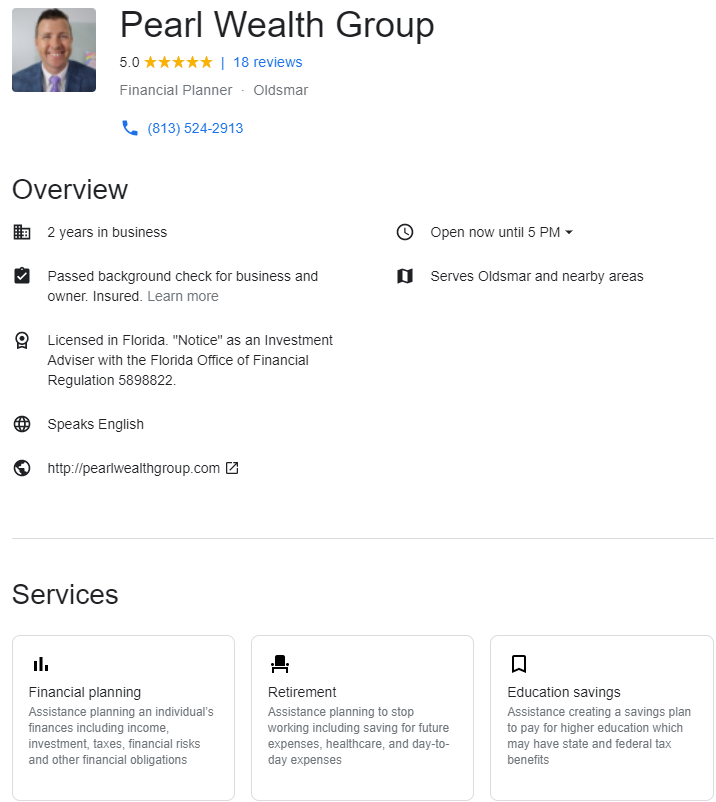
There are many aspects to be aware of when you search for a financial consultant. You should first verify the credentials of your financial advisor. Check their complaint record and meet them in person to see if they align with your investing style. Finally, check if they are a member of a trade association. A financial advisor should be able to share your investment philosophy. We'll be discussing some of the most important things to consider when choosing a financial adviser.
Verify the credentials of an advisor
There are many options for finding a financial professional, but you need to ensure that their credentials are verified. Certified Financial Planners (CFPs), are people who have completed courses in financial planning and passed an exam. They also need to have certain experience. You can check their background via FINRA's BrokerCheck site. Financial planners must not only be licensed but also adhere to certain ethics guidelines and continue their education.

Check the complaint history for a financial adviser
Investing requires risk. Before investing, there is always risk. But, this information is not the only thing you should rely on. There are many other warning signs that you should be on the lookout for. Here are some warning signs to watch out for. Check a financial advisor's complaint history by conducting a Google search on their name. If there are any complaints about the advisor, they will likely show up in the regulatory databases. Any arbitrations or settlements they were involved in will be listed by regulatory bodies. You can find out if the financial advisor has been involved in any arbitrations or settlements. Although it is important to check the financial advisor's complaint history, you should also keep other warning signs in mind as well.
You can meet with a financial representative in person
A meeting with a financial planner will allow you to ask questions face-to-face, instead of via email. While you don't necessarily need to have financial questions, you might want to know what services the advisor provides and what their terms are. Your financial planner will also be able to answer your general questions, such a question about whether they offer free consultations. Before you meet with a financial planner in person, though, it is a good idea to write down your goals and ask questions.
Find someone who shares your investment style
When choosing a financial advisor, it's important to choose someone who has the same values as you. Some financial advisors specialize in high net worth individuals, while others focus on young families or small business owners. Some are even religious or specialize in one particular group. Whatever your preferences are, finding a financial advisor who shares your values is a crucial part of securing your financial future. A financial advisor who shares your values and invests like you does is the ideal fit for you.

Do a background check
Before you hire a professional financial adviser, make sure to do background checks. An advisor who has been in the business for many years should not be trusted without a background check. There are several ways to check on the credentials of a financial advisor, including searching for their CRD (Company Registration Document) on the Securities and Exchange Commission's website. You can also check for any articles or other possible landmines written by them.
FAQ
Do I need a degree to be a consultant?
The best way to become an expert on any subject is by studying the subject thoroughly and then practicing what you have learned.
Start studying today if you want the skills to be a great manager!
A degree without relevant experience may make it difficult for you to be hired. You could still apply if you are able to show that you have the same subject knowledge as the people who were hired.
But remember, employers will always look for candidates with real-world expertise.
What kind of contracts can consultants sign?
Most consultants sign standard employment deals when they're hired. These agreements specify how long the consultant will be working for the client and what he/she will be paid.
Contracts also specify which areas of expertise the consultant will focus on and how the consultant will be compensated. The agreement might state that the consultant will conduct training sessions, workshops or webinars.
Sometimes the consultant will simply agree to complete a task within a certain timeframe.
Many consultants sign independent contractor agreements in addition to the standard employment agreements. These agreements allow the consultant not only to work for himself/herself but also provide payment.
What skills will I need to be a consultant?
Strong interpersonal and analytical skills are essential for consultants. This is important because you are working on projects where you may not know exactly what you are doing. You will need to learn how you manage people and solve problems quickly.
A strong communication skill is also necessary. Most clients expect a reply within 24 hours. If they don't hear anything, it is likely that they aren't interested in you. It's important, therefore, to always keep them informed and ensure they understand what is going on.
What happens when the consultant finishes the job?
After the consultant completes his/her work, the final report will be submitted detailing the findings of their work. This report details the project timeline, deliverables, as well any other pertinent information.
Then, you'll review the report and decide whether the consultant met your expectations. If the report does not meet your expectations, you have two options: to request changes or to terminate the contract.
What are the different types of jobs available for consultants?
Consultant work requires a deep understanding of business strategy, operations, and other aspects. It is important to understand the workings of businesses and how they fit into society.
Consultant work requires excellent communication skills and the ability to think critically.
Because consultants may be required to perform different tasks at different times, they must be flexible. Consultants should be able to quickly change their direction if necessary.
They must be willing to travel for their clients. They may be required to travel all over the globe for this type of work.
They also need to be able to handle pressure and stress well. Sometimes, consultants may be required to meet strict deadlines.
Consultants might be required to work long hours. This could mean that overtime may not always be paid.
Can anyone become a consultant
A consultant is someone who assists you in achieving your goals by offering advice and suggestions on how to achieve it faster, cheaper, and so forth.
A consultant may help you solve problems, make decisions, or negotiate with others.
For specific tasks or projects, consultants are often hired.
Actually, most consultants get paid hourly and daily rates, rather than per-project.
Why would you want to hire consultants?
There are many reasons you might need to hire a consultant.
-
Your organization may have a specific project or problem that needs solving
-
You want to improve your own skills or learn something new
-
It is important to work with an expert on a subject area
-
You have no other choice but to do the job.
-
You feel overwhelmed with all the information you see and don’t know where it is.
-
It's impossible to afford to hire someone full-time.
Word of mouth is the best way to find a great consultant. Ask around if anyone knows any reputable consultants. Ask someone you already know to recommend a consultant.
If you choose to use online directories such LinkedIn, make sure to use the "Search People” function to locate consultants in your area.
Statistics
- Over 62% of consultants were dissatisfied with their former jobs before starting their consulting business. (consultingsuccess.com)
- 67% of consultants start their consulting businesses after quitting their jobs, while 33% start while they're still at their jobs. (consultingsuccess.com)
- According to IBISWorld, revenues in the consulting industry will exceed $261 billion in 2020. (nerdwallet.com)
- On average, your program increases the sales team's performance by 33%. (consultingsuccess.com)
- My 10 years of experience and 6-step program have helped over 20 clients boost their sales by an average of 33% in 6 months. (consultingsuccess.com)
External Links
How To
How to find the best consultant
Ask yourself what you want from your new consultant before you start looking. Before you look for someone, you need to be clear about your expectations. It is important to make a list with all the requirements you have for a consultant. This could include: professional expertise and technical skills, project management capabilities, communication skills, availability, etc. Once you've listed out these requirements, then you may want to consider asking some friends or colleagues who they would recommend. Ask your friends and colleagues if they have had bad experiences with consultants in the past. Compare their recommendations with yours. Research online if you don’t already have recommendations. You will find many websites such as LinkedIn, Facebook Angie's List, Indeed and Indeed where people can leave reviews about their past work experiences. Take a look at comments and ratings from others, and use that data to find potential candidates. Once you have a short list of candidates, contact them to arrange an interview. Talking through your requirements during the interview is a good idea. Ask them questions about how they can assist you in achieving those goals. It doesn't matter whether they were recommended to you or not; just ensure that they understand your business objectives and can demonstrate how they can help you reach those goals.